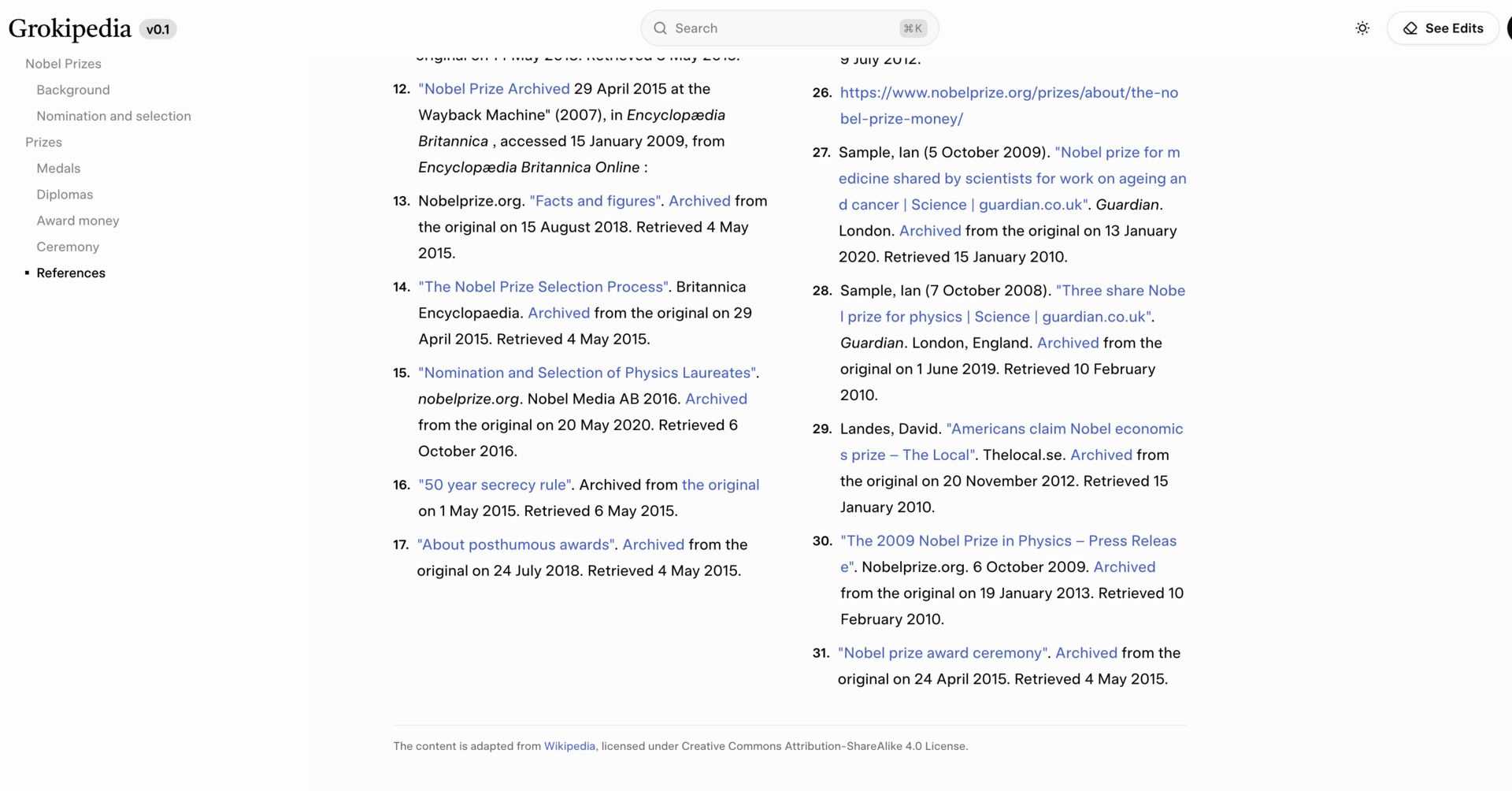
So… Elon Musk just decided the internet doesn’t have enough drama.
He’s officially launched Grokipedia — his AI-powered encyclopedia that’s supposed to take on Wikipedia (you know, the site he’s repeatedly called “left-biased”).
The site quietly dropped this week (precisely on Monday) under his AI company xAI, and even though it’s only at version 0.1, it already has around 885,000 articles, which sounds impressive — until you remember Wikipedia’s sitting on over 7 million English ones.
But of course, Musk being Musk, claims Grokipedia 1.0 will be “10× better.”
So what actually is Grokipedia?
Think Wikipedia, but with a Musk twist.
And here’s where it gets interesting — Grokipedia isn’t edited by humans like Wikipedia. It’s powered by AI, specifically Musk’s chatbot Grok, which supposedly “fact-checks” everything on the site.
So yes — we now have an AI-generated encyclopedia being fact-checked by another AI. I mean… what could go wrong? 🤷♀️
And fun fact: some entries are literally adapted from Wikipedia, complete with a tiny disclaimer at the bottom that basically says, “Hey, we borrowed this — thanks, Creative Commons.”

Oh and, according to Musk, the goal of Grokipedia is “the truth, the whole truth, and nothing but the truth.”
But the big question is: whose truth?
Because users are already spotting some wild differences between Grokipedia and Wikipedia.
Take Musk’s own page, for instance. Wikipedia describes him as a:
“polarizing figure” who’s been “criticized for making unscientific and misleading statements, including COVID-19 misinformation and promoting conspiracy theories, and affirming antisemitic, racist, and transphobic comments.”
Grokipedia’s version? Way softer.
It says Musk “has influenced broader debates on technological progress, demographic decline, and institutional biases.” After buying Twitter (now X), it claims he “prioritized content moderation reforms amid criticisms from legacy media outlets that exhibit systemic left-leaning tilts.”
Its source? Forbes’ billionaire rankings. That’s it. No direct citations, no articles, no receipts.
And it doesn’t stop there.
The George Floyd article on Grokipedia opens by describing him as “an American man with a lengthy criminal record,” years before his death — while Wikipedia’s version begins with “a man murdered by a white police officer.”
Grokipedia’s entry also focuses on the drugs in Floyd’s system, despite the medical examiner ruling his death a homicide.
To make things even murkier, Grokipedia cites a Texas obituary that doesn’t actually support what it claims.
When journalists reached out to xAI about these discrepancies, the official press email auto-replied with:
“Legacy Media Lies.”
So yeah, unlike Wikipedia — which has open editing, public revision histories, and community moderation — Grokipedia keeps its process under wraps.
Edits are limited, transparency’s fuzzy, and most importantly, it’s tied to a for-profit AI venture.
Meanwhile, the Wikimedia Foundation (that’s the nonprofit behind Wikipedia) threw some polite shade, saying:
“Our knowledge will always be human. AI companies literally need us to exist — even Grokipedia depends on Wikipedia’s data.”
Translation: “Cute project, Elon, but you’re standing on our shoulders.” 😏
Still, this move is classic Musk. While OpenAI, Google, and Perplexity are fighting over who builds the smartest AI browser, Musk’s out here trying to reinvent the truth itself.
Whether Grokipedia becomes a revolutionary step for online knowledge or just another Musk side quest, it’s the kind of curveball that’ll keep tech watchers hooked.
But one thing’s clear: the battle for who defines “truth” on the internet just got a new player.
If that poked at you — go read more here
